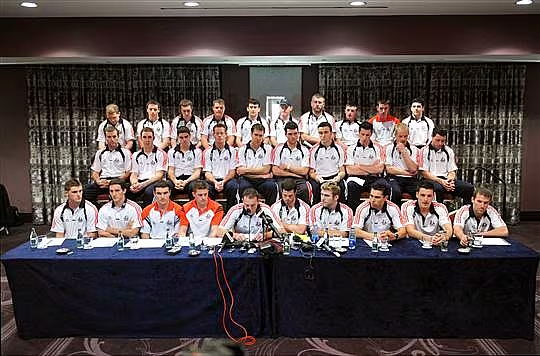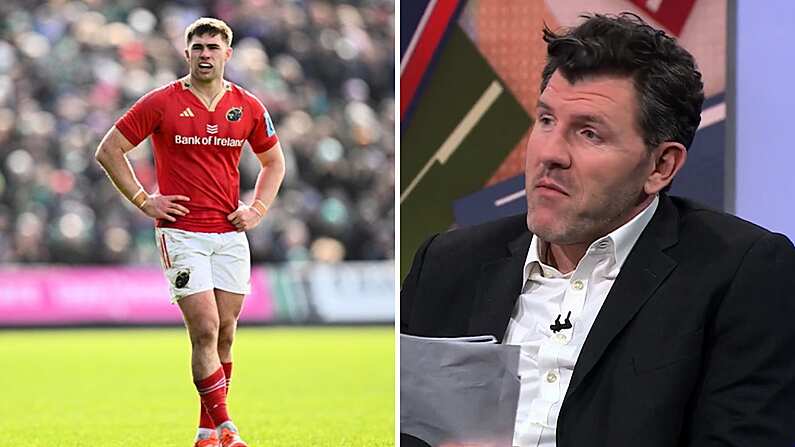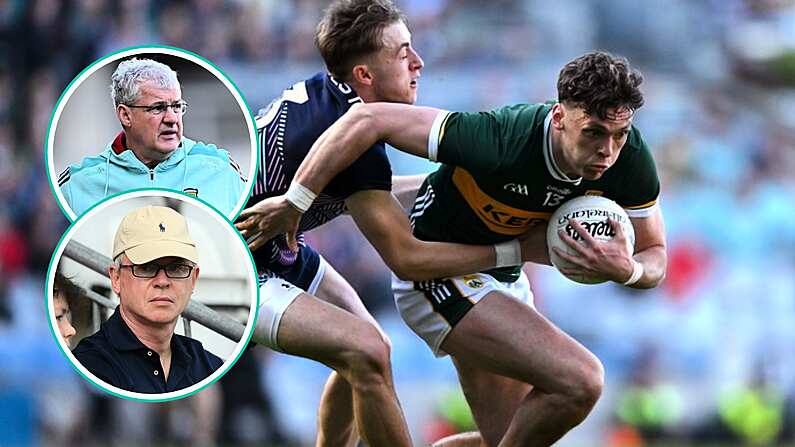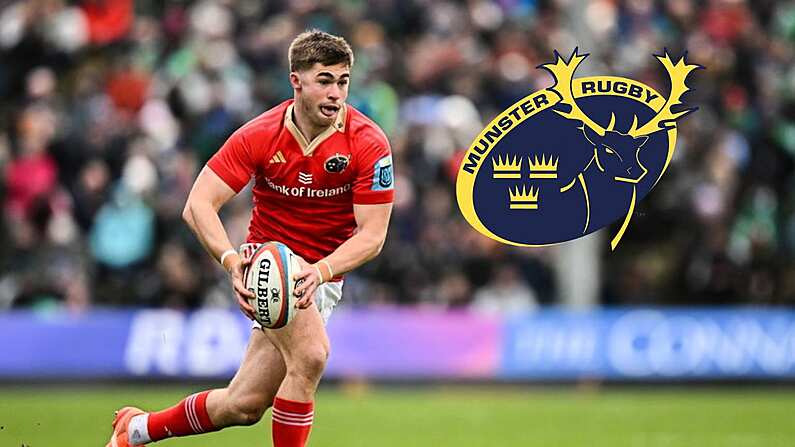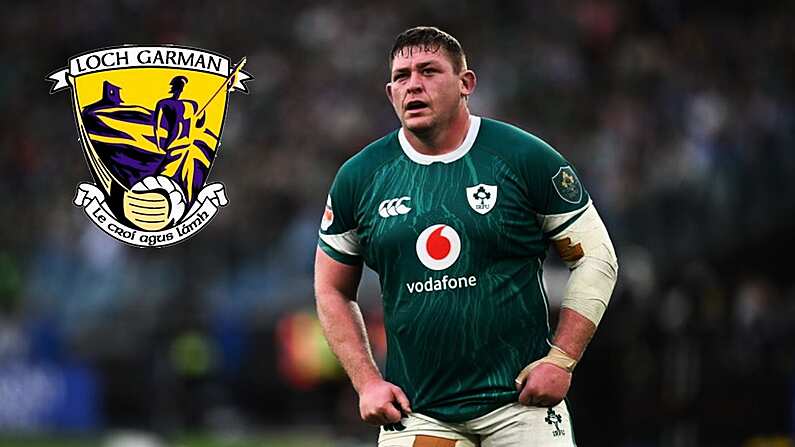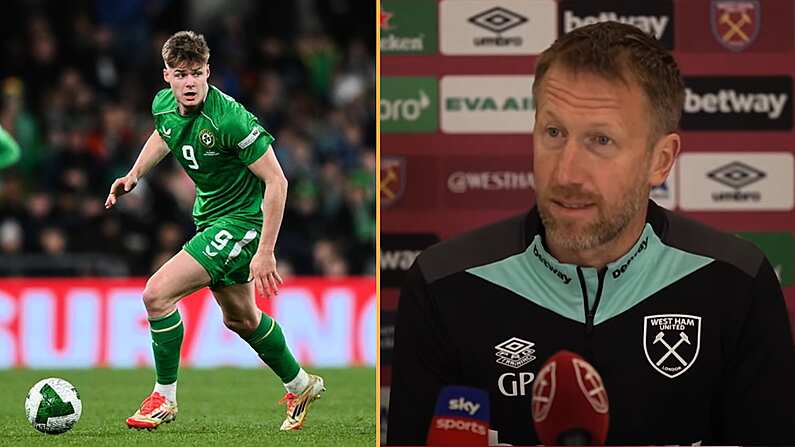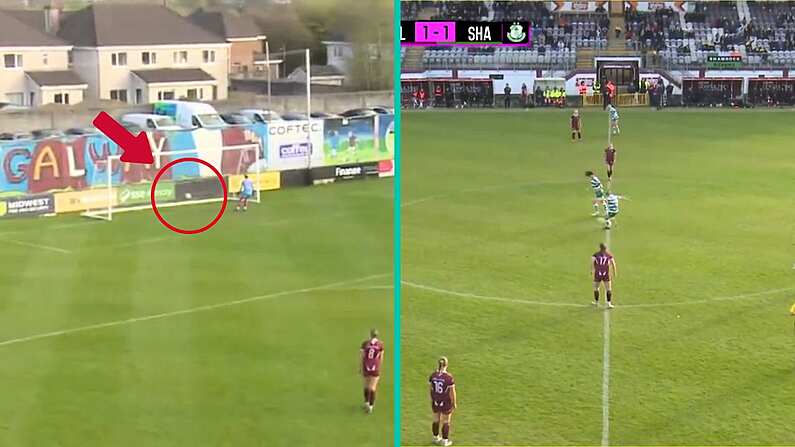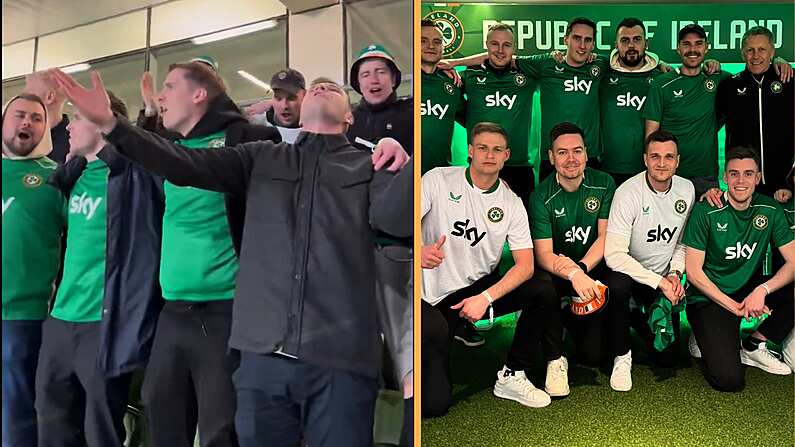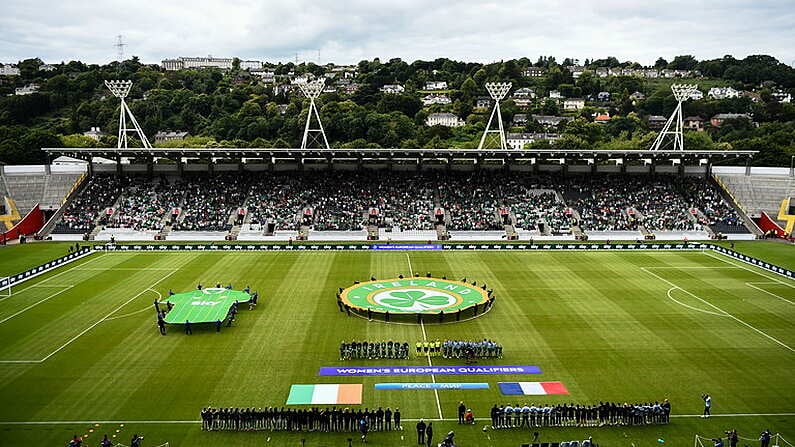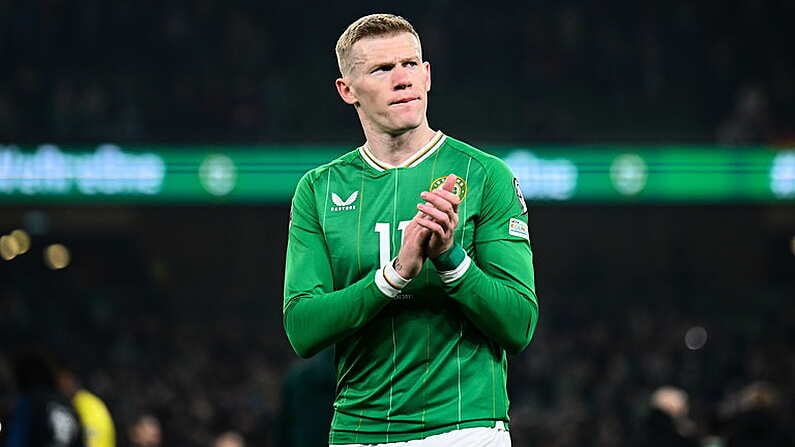I would like to say at the outset that I wrote this post last night just so I could be out among you today. On this day of protest, we recall some of our favourite sporting protests. The world of sport has seen many, Mohammad Ali's refusal to serve in Vietnam, Tommie Smith and the famous black power salute and the recent St. Louis' Rams 'hands-up' protests. Too many in fact, which is why we've sought to restrict it to Irish sport.
The 1981 refuseniks: Tony Ward, Moss Keane, Hugo MacNeill and Donal Spring
Back in the early 1980s, when pop stars and Dunnes Stores' cashiers railed against it daily, it seemed like apartheid's only friends were the good people in charge of rugby football.
Unperturbed by the sight of brutes like PJ Botha in power, the IRFU decided to tell all those shaggy-haired do-gooders of the anti-apartheid movement to go hang. They were embarking on a tour of South Africa in 1981 no matter what. The opponents of the tour included the government, all established political parties, churches, trade unions, student bodies and other sporting organisations.
The stock rationale for the tour was that sport and politics should not mix and coach Tom Kiernan said he reckoned the tour would do greater harm to apartheid than good. (In which case, the tour's role in ending apartheid has been shamefully overlooked by the new South Africa).
Most players went along and Ireland sent a decent side out on the pitch for the tests in Cape Town and Durban, where Ireland performed creditably both lost both tests.
Four players refused to travel on explicitly moral grounds.
Iconic second row forward Moss Keane, outhalf Tony Ward, full-back Hugo MacNeill and back-row forward Donal Spring. The latter explained his position this way.
Though I agree with the theory that sport and politics should be kept apart whenever possible, when the evil involved is so fundamental a part of society that it transcends all aspects of human life as in South Africa, one cannot hide behind a banner labelled sport, trade, tourism etc.
The Cork hurlers (2002-2009)
By the time they launched their third strike - prompted by the re-appointment of Gerald McCarthy to the manager's position for the 2009 season - people were well fed up of the Cork hurlers.
They had been on more strikes at this point than David Begg, Jack O'Connor and Brendan Ogle put together. Whatever their reasoning, people were inclined to view them as uppity and, quite frankly, taking the piss at that stage.
Their first strike in 2002 was largely about the facilities and supports available to the Cork team. The second one five years later represented a joint-effort with the footballers and was based on the players' insistence that the manager and not the county board should get the pick of his selectors. And the most vicious of them all came the following year when the county board, according to the players, reneged on their promise to properly consult them in the appointment of a manager, and went ahead and appointed McCarthy for another year.
As far as the players were concerned, the dark lord at the head of this regime was one Frank Murphy - the man about whom young Cork hurlers tell their kids and younger siblings tell scare stories at bed time. He has been the most influential figure in the administration of Cork GAA since the 1970s. Despite the strike's relative success, he remains in situ.
Eamon Dunphy
Image: Brand New Retro
Dunphy outspokeness didn't just begin when RTE plonked him behind a desk in Donnybrook. During his playing days, he was a big cheese in the players union, and enjoyed a media profile in Britain that went beyond his status as a second division footballer. He penned a column entitled 'Dunphy's Diary', in which are contained many passages later included his classic 'Only a Game?'
In 1972, he wore a black armband shortly the week after Bloody Sunday, and urged all other Irish players to do likewise. None did. He was the only player in the Football League to wear an armband that weekend.
A couple of years later, John Giles, recently installed as Irish manager, arranged a tour of Chile. Dunphy wasn't having it. He circulated leaflets on dictator Augustin Pinochet's crimes, the death of Socialist president Salvador Allende and the role of American corporations in said coup. The tour was a disgrace. As Johnny Giles told Miriam O'Callaghan on that merry chat show appearance, he decided to go ahead and pick a hitherto out-of-favour Dunphy for the tour. 'And, who was the first person on the bus when we set off for the airport?'
Trevor Hogan and Gordon D'arcy
If they were footballers, fines could have been handed out. Dundalk were hit with a hefty fine after their fans waved a Palestinian flag at Oriel Park this year. A political symbol, according to UEFA.
While activists often compare the plight of the Palestinians to that of black people in South Africa pre-apartheid, sport evidently does not agree. When George Galloway wrote to every professional footballer in England (via the PFA) seeking donations for a pitch in Gaza, damaged destroyed by Israeli shelling. A total of £0.00 was donated.
However, two Irish rugby players are vocal on the treatment of the players. While Trevor Hogan is more intimately involved in the cause, having been aboard an aid convoy, boarded by gun-toting Israeli soldiers before it could reach Gaza - Gordon D'arcy has also appeared at marches decrying events in Gaza.
@theexchequer really proud of the exchequer boycotting Israeli goods #Gaza
— Gordon D'Arcy (@Gordonwdarcy) August 1, 2014
Keep Rovers At Milltown
Talk to any League of Ireland fan 'of a certain age' and it won't be long til he gets misty eyed about Milltown - or Glenmalure Park to give it it's official name.
Rovers played their final game at Milltown against Sligo Rovers on 12 April 1987. They had just scooped their fourth successive League title but the atmosphere after the game was one of anger, sadness and recrimination. The club's owners, the Kilcoyne family had to be guarded by a cordon of protectors.
The crowd for the final game was 6,000 - which was over 5,000 more than attended games at the ground at a regular basis. The KRAM protests also attracted far more people than seemed to attend Shamrock Rovers games on a regular basis. These facts provoked little introspection among the protesters. Labour politician for the area, Ruari Quinn was particularly visible at the protests.
In his book, 'Who Stole Our Game: The Fall and Fall of Irish Soccer', Daire Whelan compared the reaction of the general public to the sale of Milltown to that of a grown man whose dusty old train set had lain untouched in the attic for years and years, but who threw a hissy-fit when it was suggested it might be time to throw it out.
Jimmy McCarthy and ten others at Ravenhill, 1954
Yesterday, Traditional Unionist Voice parliamentary candidate, Sammy Morrison said he objected to Ireland's refusal to play the anthem of Northern Ireland (aka, GSTQ) before Irish rugby matches. He can thank Jimmy McCarthy and the southern based Irish players of the 1950s for this.
Back in those times, Ireland played a fair portion of their games up in Belfast - indeed Ireland claimed the 1948 Grand Slam after a victory over Wales in Ravenhill. Six years later, the team took the train up from Dublin to face Scotland in the Five Nations. Cork's Jimmy McCarthy, a Lions flanker, was captain.
It was customary for the two teams to stand for one rendition of God Save The Queen before games in Belfast. (It wasn't until 1988 that Scotland stopped using God Save The Queen as their anthem, switching to Flower of Scotland).
However, the night before the game, McCarthy told the IRFU chairman that the southern based players would remain in their dressing rooms for God Save The Queen. Only the four Ulster players would stand for it. McCarthhy was advised to sleep on it, but remains unbowed on the day of the game.
Eventually, a compromise was hammered out, whereby an abbreviated version of God Save The Queen, known in Ulster as 'the Salute' was played.
Ireland won the match 6-0. They would not play at Ravenhill again until a pre-World Cup friendly in 2007.


